Acts 2:14a, 36-41; Ps. 23:1-3, 3b-6; 1 Pt 2:20b-25; Jn.10:1-10
In his footsteps “he guides me in right paths”. As baptized sons and daughters of Christ, we are being called to walk in the footsteps of Jesus, that is to take up our cross willing to “suffer for doing what is good”. He left us “an example that you should follow in his footsteps”. He who “committed no sin” then is calling us to avoid sin “so that free of sin we might live for righteousness.” In the footsteps of Jesus, we learn to walk by faith, listen to his voice, and recognize what is truth, goodness, beauty, and unity. We learn and experience the true meaning of love which is God himself. For this he sent his only begotten son, Jesus as true God to show us the way and to be the guardian of our souls.
“For the promise is made to you…and to whomever the Lord our God will call” says Peter. Peter was speaking to the Jews but recognizing Jesus came to call all to repentance opening the gate to Jew and Gentile alike. The call is an invitation to the wedding banquet but as we know from scripture many have not accepted the wedding invitation both Jew and Gentile alike. For those who have accepted the invite this promise is for you. It is the promise of forgiveness of sins, the promise to always lead us down right paths in this life, and the promise to the glory of heaven in the afterlife.
“I am the gate” says Jesus “leaving you a good example that you should follow in his footsteps” says 1st Peter. Through the gate we enter into the kingdom of God. Jesus is the gate of our salvation as we pass through the waters of baptism, he opens our ears to hear his voice, our mouths to proclaim his truth and our hearts to follow in his footsteps by living his example. This is where the expression “the rubber meets the road” applies, where many of those who have been called leave the sheepfold.
The footsteps of Jesus include avoiding sin, deceit, insults, threats, and any other kind of malice, while bearing patiently when we suffer for doing good. “Easily said than done”. You might say, “come to my house and see if you can live up to the test” or do you say “not in my home, we are all very gentle and kind to each other, we respect our space, we honor each other by being of service to each other, and never get upset”. Right? Husbands are always ready to help wives with the dishes, children get to their chores without reminders, and wives don’t nag but are happy to remind everyone what needs to be done, again and again. Right? None of this is possible by our own strength but with the grace from God all things are possible. We truly can be holy and we are called to be holy.
In the footsteps of Jesus, we come to accept that we cannot change anyone but ourselves. It is in how we change that we influence others to change. When we follow the “good example of Jesus” others will question and wonder “how can you be so at peace, don’t you worry, do you care, do you realize” and on and on and on as if we were out of touch with the world. We are not out of touch with the world but out of step with the world in order to be instep with Jesus. Are we ready for this or are we still thinking, fighting, or even forcing others to do our will? If the devil himself cannot force us to do anything and his power lies in temptation and God himself will not force us to do anything but only call us to respond to the invite then how can we expect to be more powerful than others.
Jesus “handed himself over to the one who judges justly” and we hand ourselves over to Jesus our just judge who knows our hearts. Yes, we can surrender to God and trust Jesus. This does not mean we stand idle waiting for life to happen or for God to “fix it” whatever “it” is. It means we always move forward taking the right next step, doing what is in our capacity, our purpose to do good, and our commitment for what is right. Trust Jesus and when in doubt “let go and let God” trusting him even more to guide us in right paths.
Jesus is the “guardian of our souls” against “thieves and robbers” who are all around us. We look at the “culture of death” all around us and we wonder how to protect ourselves and our children from the influence of this culture. We also cannot misuse our faith and say “the world is corrupt there is nothing I do”. In fact, the world won’t let us stand as an idle bystander but will challenge us on where we stand by coming as thieves and robbers in every aspect of our lives, work, school, social, and even into our homes. How will we respond? Jesus is the guardian of our souls by following in his footsteps. He has given us “the way” and it comes through to us in his word, his church, and his good example to follow.
The good news is “The Lord is my shepherd; there is nothing I shall want”. With the Lord we “come in and go out and find pasture”. Where do we go out? We go to do his will in the world with the armor of God. The weapon of Lord is his word which we live by walking in his footsteps. The weapon of the Lord is his body and blood as guardian of our soul providing a shield against every evil demon. The weapon of the Lord is his power of love to shine light into every darkness that seeks to destroy us. We graze on the blessings of life God provides us. We engage in the world to serve God not in fear but with faith, hope, and love. The good of the world is there as a pasture for us and that too can be of service to God.
In birth we receive the gift of life to live for the Lord. In baptism we receive the gift of the Lord himself to be the armor of our life. In the church we receive the sacraments as our defense shield against the attack of the enemy. In God we go forth to walk in his footsteps as the militant church on earth. Our mission is to conquer evil with good and overcome anger, despair, lies, and every kind of malice, with the love of truth, goodness, beauty and unity that we may all be one so that the world may believe.
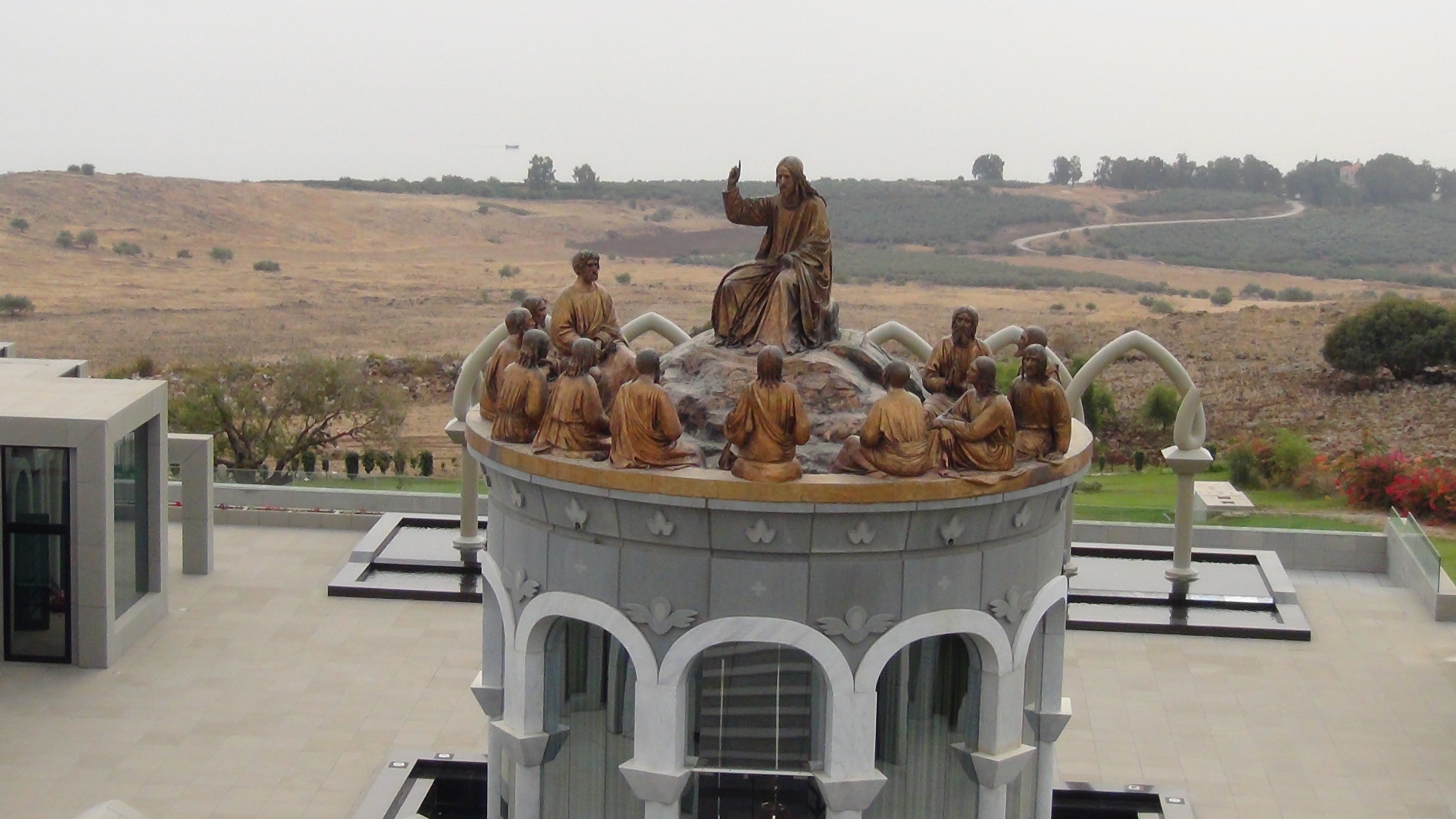


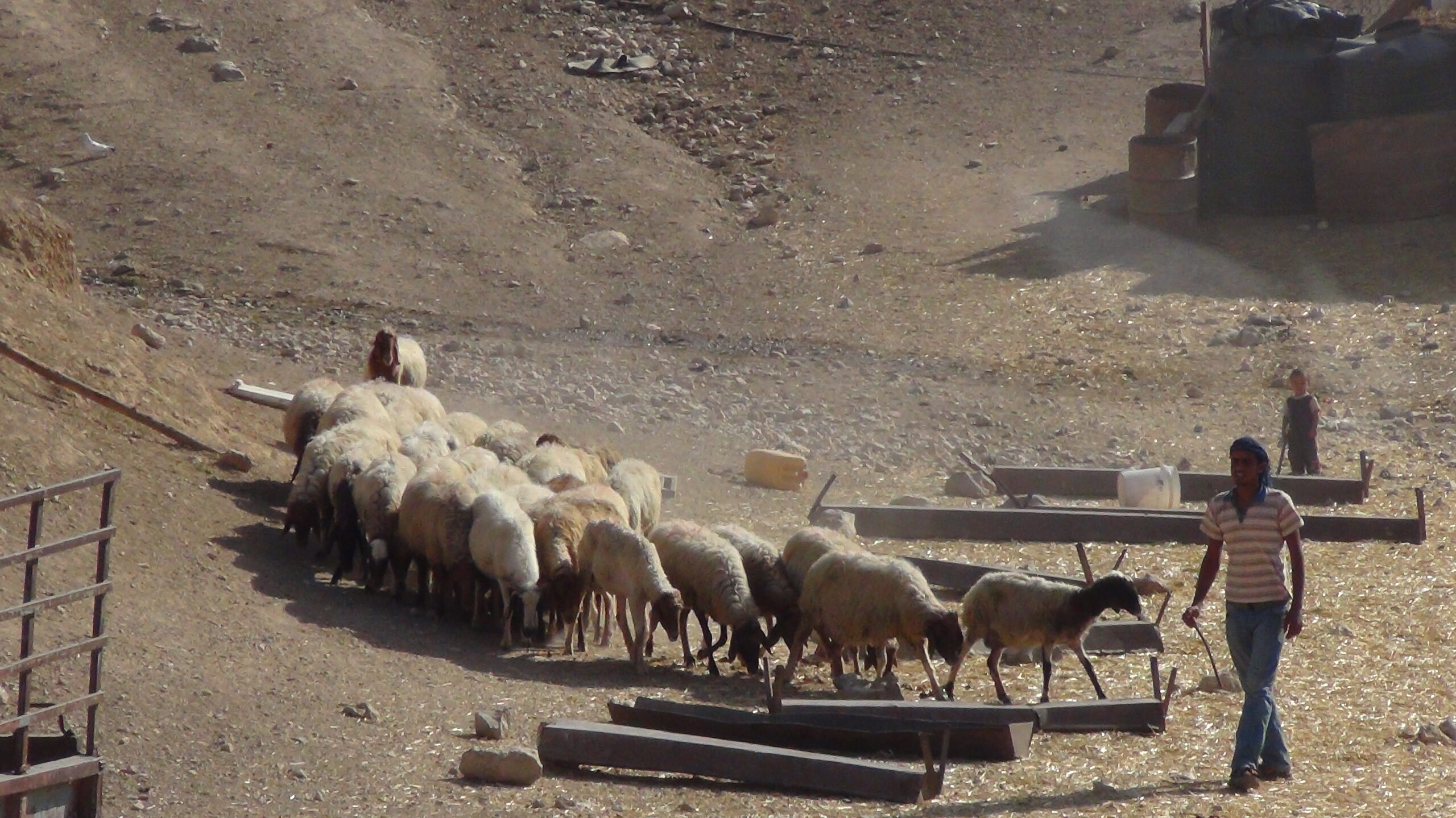

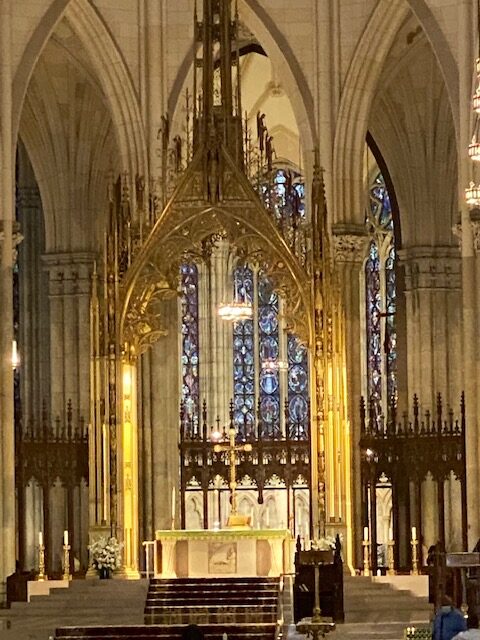

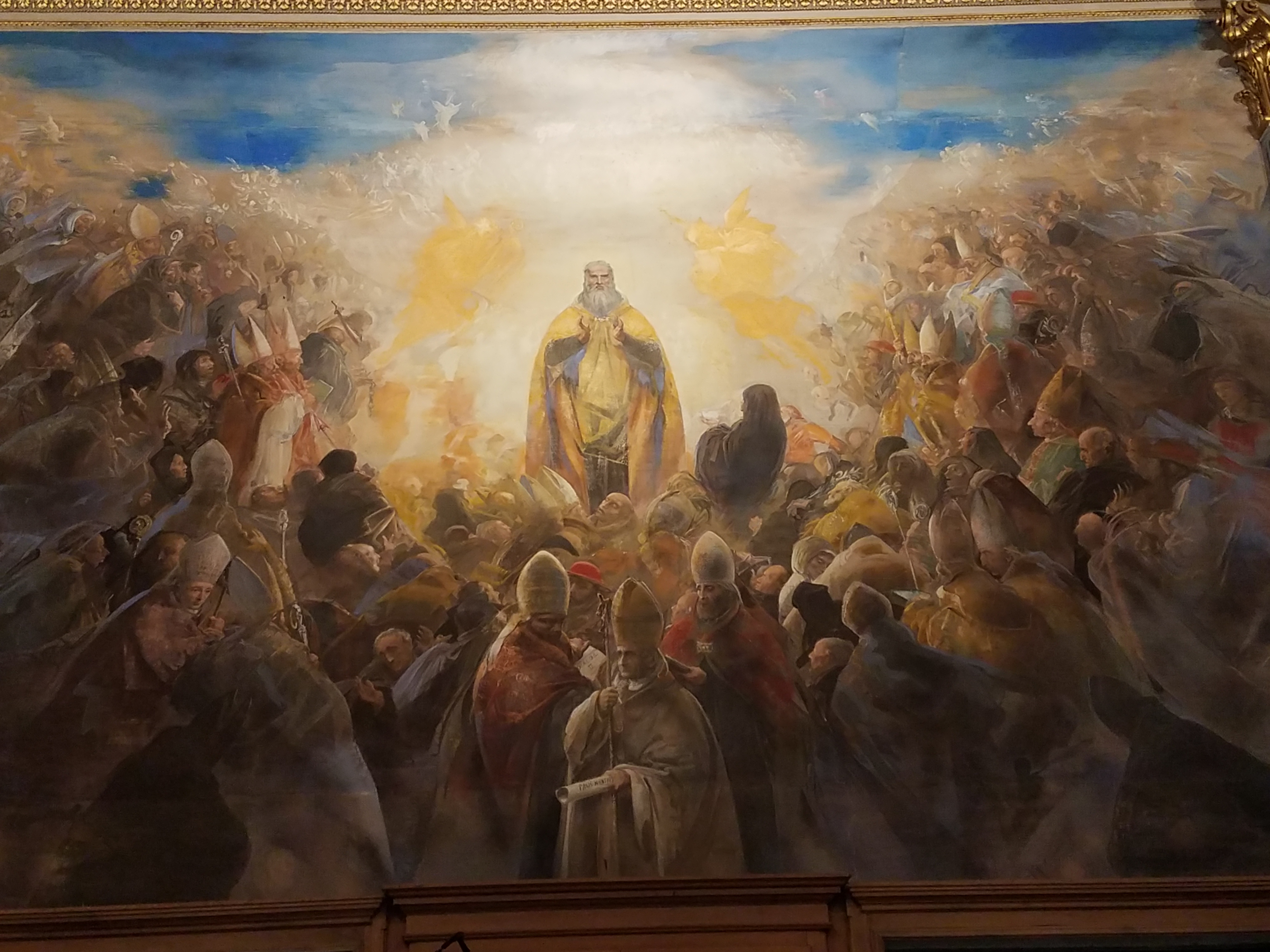

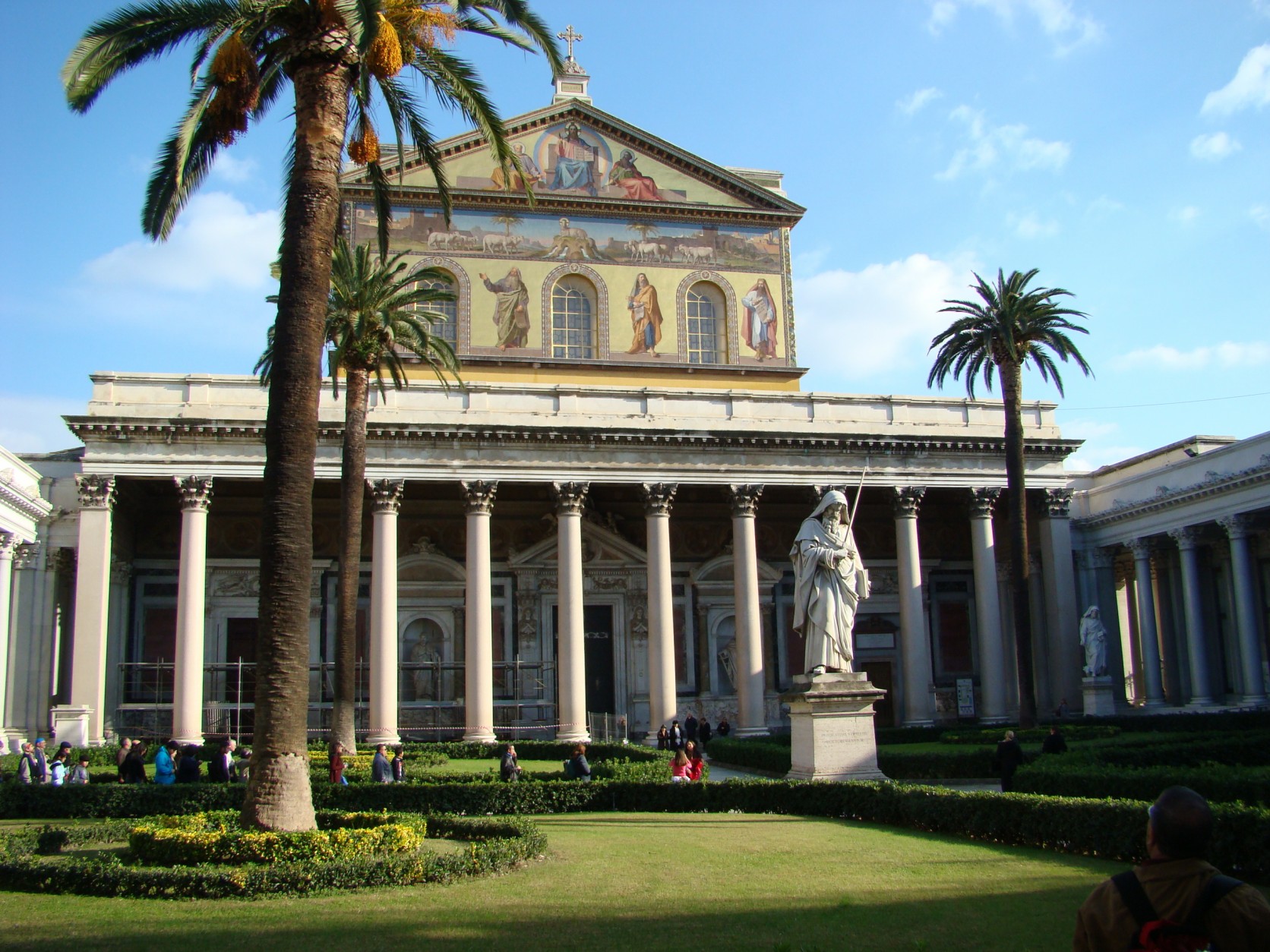

Recent Comments